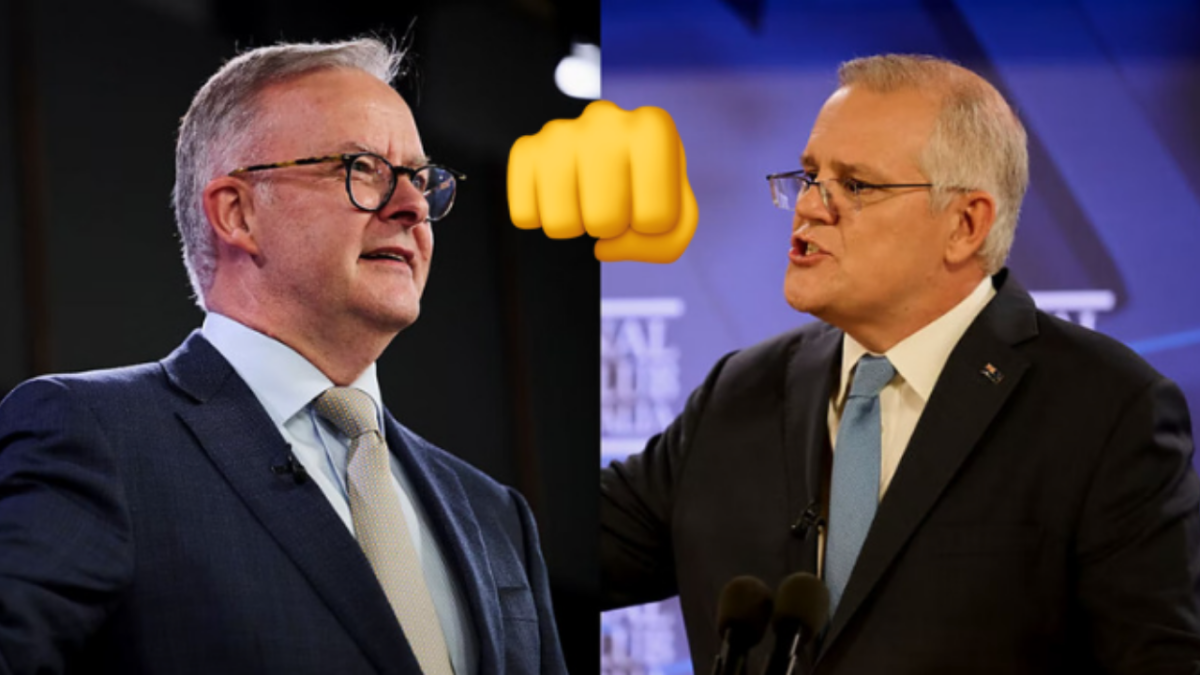
On Saturday May 21, Aussies will be heading to the polls for in the next federal election. When all the votes are counted and all the democracy sausages are gobbled up, we will know who’ll be running the government for the next term. So how did we get to this point and what happens now? Let’s find out.
When is the next federal election in Australia?
The 2022 federal election date is May 21 2022.
It was up to the current Prime Minister Scott Morrison to decide when the election would be held which he did on Sunday morning after visiting the Governor-General in Canberra. The election date needed to be before a specific deadline to ensure that no government overstays their welcome.
According to the Commonwealth Electoral Act 1918 and the Australian Constitution (*yawn*) the federal election date could’ve been called for no later than May 21 2022. Otherwise, the PM would’ve gotten in big trouble.
The election date must always fall on a Saturday as per the Parliament of Australia. This should give voters plenty of time on Sunday to either recover from celebrating or sit and eat ice cream in bed — depending on whether your favourite candidates won/lost.
It’s an election year & we’re proud to have a record 17m Aussies enrolled (96%). Today we’re reminding a further half a million potentially unenrolled ppl via text/email to take action. Go to https://t.co/pv99YKCt7u to enrol now. #auspol pic.twitter.com/UVp9ouEyjW
— AEC ✏️ (@AusElectoralCom) January 27, 2022
In previous years, PMs have generally avoided placing the election date on long weekends. Because let’s be honest — who wants to be thinking about politics when you could be enjoying a well-earned weekend away with ya mates?
One last little guideline is that there must be 33 days between the PM deciding the federal election date and the election itself. No ifs, buts or maybes.
How will COVID-19 affect the next federal election?
COVID will affect the election logistically in terms of how voting will be organised.
Whatever the election date may be, the Australian Electoral Commission will give Aussies as many safe opportunities as possible to cast their vote while avoiding Ms Rona.
At official polling places, this will mean practices like mask-wearing, hand sanny, and social distancing will be a definite thang.
As for the elephant in the room, the answer is no — we don’t have the official green light for sausage sizzles just yet. However, I have a feeling there would be tomato sauce-fueled rioting in the streets if they were cancelled.
Aussies will also have the opportunity to get involved in early voting to avoid potentially spicy cough-ridden crowds on the official Federal Election date. Early voting will be conducted at specialised early voting centres which we’ll give you more info about after the election date is announced.
The AEC will provide mail-in voting options to those living overseas. There will also be mobile voting available to Aussies living in aged care facilities or hospitals.
Are you registered as an overseas voter? An Australian federal election must be held before late May 2022. Be ready when its announced – go to https://t.co/FhhlMtB83B pic.twitter.com/gMF0Xc72yn
— AEC ✏️ (@AusElectoralCom) February 21, 2022
The AEC has said that all these increased safety measures might make the vote-counting process take a lil’ longer. However, that’s totes fine by us if it means folks feel more comfortable rockin’ up to vote.
It should also be noted that regardless of your vaccination status — you are 100% allowed to vote in the election via whichever method suits you best.
Another way COVID will affect the next federal election is that voters will likely factor in the current government’s handling of it when considering who to vote for.
It’s no secret that COVID has been dominating headlines for the past two years. Because of this, general sentiment about the Federal Government’s COVID response could be the difference between victory and defeat when the next federal election rolls around.
How long does the federal election campaign run for?
Officially, the election campaign runs from whenever the next federal election date is announced until voting closes on the actual election day.
Despite this, it has deffo been feeling like the campaign was in full swing even before the election date was decided.
Both Leader of the Opposition Anthony Albanese and PM Scott Morrison have been visiting pubs, popping into worksites and holding press conferences to sell their vision for Australia’s future to the voting public.
Don’t be surprised if you notice heaps more election campaign signage, TV and radio ads, social media marketing and flyers in your letterbox in the months to come.
How often are federal elections held in Australia?
Australia holds a federal election every three years.
The last one was in 2019 and the next won’t be until 2025.
Three years is a bloody long time so make sure you do some research on which candidates you prefer — otherwise you could be stuck with a bum candidate. Real talk.
How long is a government term in Australia?
Terms last for three years in the House of Representatives (AKA: the Lower House) and six years in the Senate (AKA: the Upper House).
A term will begin whenever a government is sworn in by the Governor-General — the Queen’s legal representative.
For example, if Anthony Albanese were to win the election, he and all the other candidates who won their seats on election day would be sworn in shortly after the election.
Once the elected members of Parliament take the “Oath of Allegiance” their term officially begins.
So there you have it, folks!
That’s (pretty much) every detail you could hope to know regarding the date of the next federal election.
All that’s left to do now is enrol to vote and keep your eyes peeled for more of PEDESTRIAN.TV‘s spicy explainers.



